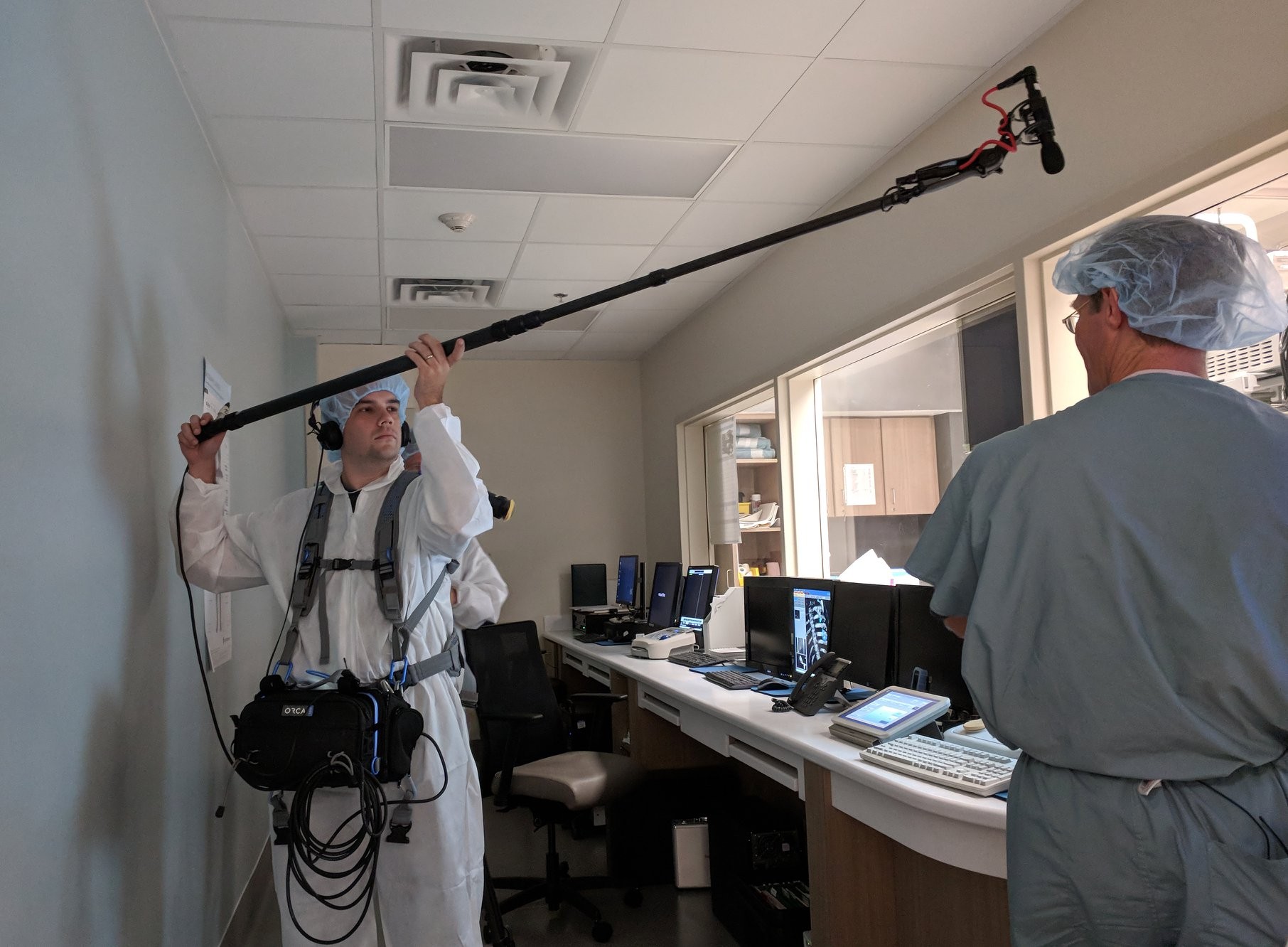We were lucky to catch up with Nicholas Laws recently and have shared our conversation below.
Alright, Nicholas thanks for taking the time to share your stories and insights with us today. Earning a full time living from one’s creative career can be incredibly difficult. Have you been able to do so and if so, can you share some of the key parts of your journey and any important advice or lessons that might help creatives who haven’t been able to yet?
My journey to full-time filmmaking started in 2015, when I quit my stuffy corporate job and went to work for a local production company making videos. It was fulfilling, despite making less money. Ultimately that job led to another, which led to another, which led to full time freelancing.
If I could go back in time, I might tell myself that I need to pick a lane and work towards it. But at the same time, I feel like I’ve got a little experience in just about every type of production. These days I mostly do production sound for movies and TV. But I also paid the bills as a videographer, doing everything from birth announcements to funerals. I still film quite a few weddings every year and the occasional dance recital, and I enjoy that, but I’ve been lucky to be able to work on feature films, which is the ultimate goal.
Jumping into freelance work full-time is a big step that’s not for the faint of heart. Luckily I have a great support system (AKA my wife). The film community here is also very supportive, and I know I can count on them for referrals and help on larger projects.
It also helps that I chose to focus on sound, which is not something that many in my area do. So I am a bit of a bigger fish in a smaller pond, which is where you want to be. Obviously you have to play to your strengths, but if you can line that up with a gap in the market, you’re in business.


Awesome – so before we get into the rest of our questions, can you briefly introduce yourself to our readers.
I call myself a filmmaker, although Kubrick’s right-hand-man Leon Vitali said it best when he called himself a filmworker, which is probably more accurate. I have been the production sound mixer on five feature films, a boom op on another, and the DP on yet another. I have worked on countless short films in just about every capacity from director to PA.
What makes me successful, insomuch that I am, is my technical abilities in film, my creativity, and my attitude. I soak up film knowledge like a sponge and never stop learning. I use my experience to tell stories in a way that is both effective and original. And I’m generally a fun guy to be around on set.
Is there mission driving your creative journey?
As cliche as it might sound, what I really want to do is direct a feature film. It hasn’t always been my goal, but I feel like I’ve been steering that direction subconsciously while the universe has been pushing me that way at the same time. If I had started out working to be a director, I’m not sure I would have the skillset and experience that I feel will make me a good feature film director. I went to school for business management, and even though I quit that stuffy corporate job to pursue film and video production, I understand now that filmmaking is a business just like any other, and it needs to be managed in some of the same ways. As a sound mixer, I’ve had the opportunity to work with other directors and really see what works and doesn’t work, which will undoubtedly guide my decisions as a director.



Do you have any insights you can share related to maintaining high team morale?
Filmmaking is incredibly rewarding, and at the same time it can be very draining and stressful. The hours are long and often in harsh conditions. So keeping the crew’s morale high is incredibly important. The keys to this are sharing your enthusiasm, leading by example, and treating everybody with equal respect.
The best feeling on set is when everybody is firing on all cylinders. The grips and electrics have nailed the DP’s vision. The camera team nailed the composition and focus. The sound team captured all the dialogue flawlessly. The costumes, hair, and makeup teams had the actors looking their best. Production design laid out the environment perfectly. The PAs kept everything running smoothly. All this support the actors as they do their job, which is ultimately what tells the story. And when it all clicks, the result is magic. So as a director, when I get that magic feeling, I want everybody to know it. That enthusiasm spreads like wildfire across the set. And this can happen even at 4AM in the middle of Winter shooting outside.
Leading by example can sort of be challenging in a film set, where roles are delegated very strictly. But if you’re asking your crew to work hard, the least you can do is also work hard. Show that you’re there with them, and don’t forget to spread that enthusiasm when it starts coming together.
Finally, treat everybody with the same respect. I fully believe that every person on set is just as important as the star actor, and should be given the same treatment. As I said before, we’re all servants in support of the story, and it takes a lot to make that vision happen. So treat everybody with respect and you’ll get it back in return.
Contact Info:
- Website: soundguynick.com
- Instagram: https://www.instagram.com/thenicklaws/
- Facebook: https://www.facebook.com/thenicklaws
- Youtube: https://www.youtube.com/nicklaws


